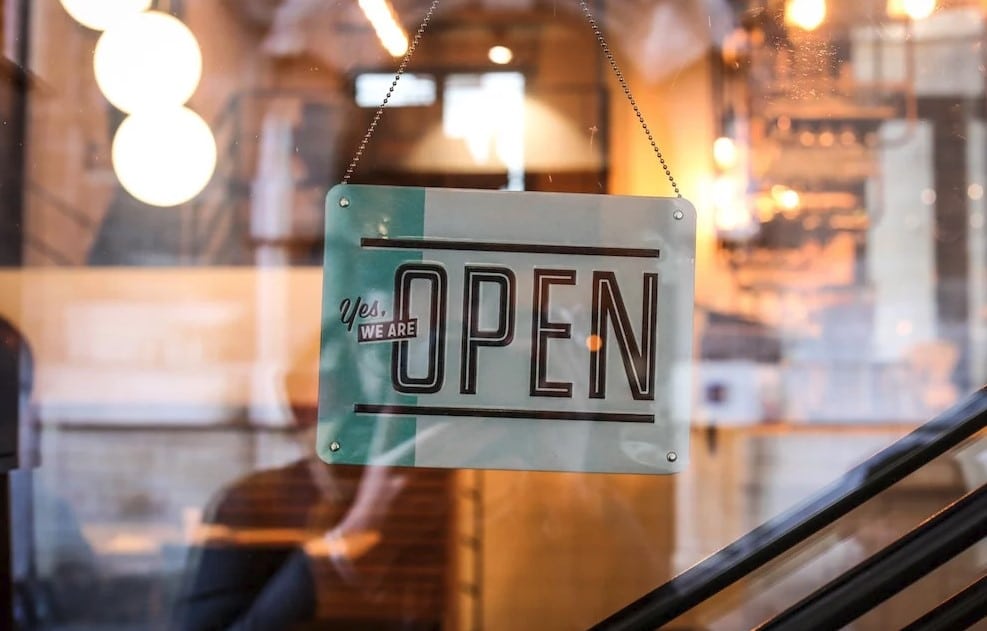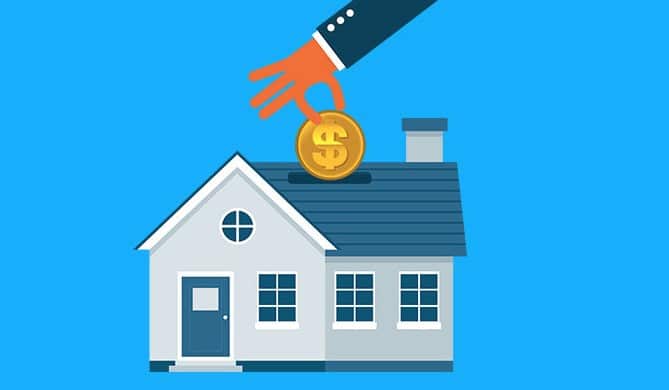Why buying a home is less risky than starting a business
If you log onto a news website or switch on breakfast television, you could be forgiven for thinking Millennials should just give up on most aspects of life.
Wages have stopped growing. The world is an unstable and uncertain place. And the Great Australian Dream of owning property seems long dead.

I came across some incredible research the other day – The Australian Millennial Report – that shows owning a home scores 5.6 on a scale of zero to ten when it comes to attainability. And investing in property within the next five years rated 6.72, which actually demonstrates strong optimism about the younger cohort in that regard.
But I was alarmed to see that by comparison, the prospect of starting their own business scored 5.8 with responders, which shows that young Australians view going out on their own professionally as marginally more feasible than owning their own property.
Getting your foot on the property ladder is a challenge, for sure, but it presents far fewer risks than starting your own business – and it could deliver more long-term benefits.
Here’s why:
Compare the pair
Let’s say you’re a chef and you want to open your own café or restaurant. You’ve been working for someone else for several years and you figure you might as well slog it out for yourself, not them.

The outlays are enormous. You need a huge bank loan with a staggering interest rate to get set up – finding a space, fitting it out, buying equipment, getting suppliers on board and hiring workers.
There’s also branding, marketing and publicity, insurance, regulation requirements, and health and safety licenses to fork out for before you’ve even opened the door. And don’t forget electricity, water, gas and rent.
Then when you do, you’ve got to pay money to buy and store the goods and pay the wait and kitchen staff – even if not a single customer shows up.
That sounds pretty risky to me. Replace chef with plumber, hairdresser, designer or any other profession and there are a whole set of expensive costs before you even get around to running the business. Being your own boss is rife with risk.
Now, let’s look at property.

You go to a mortgage broker, like me, and dissect your situation. We determine that you – and your partner, if you have one – earn X and have expenses totalling Y. That means you’re eligible to borrow an amount, which we’ll call Z.
You find your first home or investment in an area that has good prospects. The place itself might need a bit of love, but it’s something you can chip away at over the coming years to truly make it your own.
Your mortgage repayments go into the Y bracket and you’ve still got enough a buffer for rainy days and quality of life.
Not only are you not paying rent, but the bricks and mortar you’re now calling home is making money each day. Forget the rumblings about property prices – that’s a drop in the ocean in the grand scheme of things.
Seriously, over the long-term, what we’ve seen in Sydney and Melbourne in the past 18 months barely even registers.
Think about the distant future
The market in Sydney has been described as having gone through a ‘catastrophic crash’ by some media outlets. But really, the falls we’ve seen have taken prices back to 2015 levels.
As in, just over three years ago.

The boom there began in 2012 and from then until the start of declines in late 2017, prices grew by 77 per cent. That’s not a bad return for five years.
Economists predict the downturn will begin to slow this year, before plateauing and entering a recovery stage next year. They expect that when it’s all said and done, prices will have fallen to 2014 levels, meaning total growth will still be 50 per cent from the start of the boom.
Find me someone who has started their own small business and made that kind of return!
Property investment – and homeownership counts, which I’ll touch on below – is a long-term gain. If you buy and hold a property for a decade or two, it will appreciate in value in a way that can deliver wealth and prosperity.
Put it to work for you
When you start your own business, you can pretty much kiss goodbye any notion of free time. Every waking hour – and quite a few sleepless ones – will be devoted to your work. That’s the sacrifice of going out on your own.
By comparison, property is an investment class that you can make work for you. If you are savvy, knowledgeable and have the right team of experts on your side, there’s considerably less grunt work.

But what if you’re not investing in property? What if you’re buying your own place to live in?
That is still property investment. Even if you plan to occupy it for the next decade – even if you decide never to move out of it – it’s still an asset that is working for you and your future wealth.
Whether you leverage it to buy another bigger and better home down the track and keep it as a rental, or sell it to use the increased value to buy and have a smaller mortgage, or live it in until you retire, that wealth will allow you to do the things you’ve always dreamed of.
And if you’re especially strategic, there’s probably very little blood, sweat and tears to be shed in exchange for a nest egg that could deliver bigger returns than your own business.
You do this by structuring your finances and regularly audit them to get the best bang for your interest buck.
Get the right structure
Choosing the right finance for your property investment purchase is absolutely crucial. By getting the right product for you and your strategy, you can avoid paying tens of thousands of dollars more interest than you should.
You also ensure that you have the right product features for your situation now – and into the future. And more importantly, you can rest easy knowing that you aren’t paying for things that you don’t need.
But one of the big mistakes a lot of new property investors make is to never think about their finance arrangements again after signing those mortgage documents at the outset.
The reality is that things change. Mortgage rates go up and down. Fee structures alter. Banks get more competitive and apply discounts to attract business. New loan features are introduced, and old ones are phased out.
The sands shift constantly, and you need to make sure you’re on top of it. It could save you thousands.
Enlisting the services of a properly qualified, independent and experience finance adviser is essential at the outset, but you should also check in for regular audits of your arrangements to make sure you’re getting the best deal. The best move is to call on an experienced mortgage broker who can steer you in the right direction and maximise your outcomes.
The information provided in this article is general in nature and does not constitute personal financial advice. The information has been prepared without taking into account your personal objectives, financial situation or needs. Before acting on any information you should consider the appropriateness of the information with regard to your objectives, financial situation and needs.- Why every First Homebuyer needs a Mortgage Broker - October 7, 2024
- As Migration Returns, What Does it Mean for Housing Markets? - April 26, 2024
- How to prepare to buy your first home in 2023 - December 2, 2022

